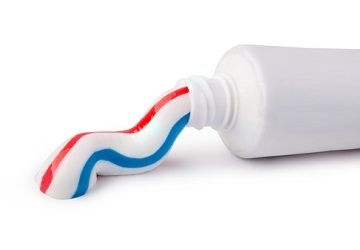Not Sure What Toothpaste to Recommend? New Study Makes It Easier
In an attempt to find out which type of toothpaste is the most beneficial for consumers, researchers have compared the mode of action in stannous fluoride-containing toothpastes (CPH) and conventional sodium fluoride-containing toothpastes (CCP) on biofilms consisting of multiple bacterial organisms.

With so many toothpaste options on the market today, it’s hard to know which product is truly providing the best cleaning and protection to teeth. In an attempt to find out which type of toothpaste is the most beneficial for consumers, researchers have compared the mode of action in stannous fluoride-containing toothpastes (CPH) and conventional sodium fluoride-containing toothpastes (CCP) on biofilms consisting of multiple bacterial organisms.
The new study involved the use of a biofilm made from three different organisms: Streptococcus mutans, Streptococcus sanguinis, and Porphyromonas gingivalis, which are all commonly found in the oral cavity. Both types of toothpastes were compared to a negative control paste. Using the biofilms, researchers performed 2-minute episodes of treatment with each type of toothpaste twice a day over a period of 5 consecutive days. Then, crystal violet staining and other specific assays were used in order to analyze the activity of the biomass and the viability of the biofilm itself.
The results of the research showed that both the total biomass and the viability of the bacterial biofilm were significantly reduced after treatment with CPH toothpaste. It was also shown that this type of toothpaste reduced the production of bacterial and extracellular polysaccharides, a type of carbohydrate made up of large numbers of sugar molecules bonded together.
Most significantly, the research found that CPH toothpaste suppressed both S. mutans, the main cause of dental decay, and P. gingivalis, a key player in the development of chronic periodontitis. The CPH toothpaste was also shown to promote growth of S. sanguinis in the biofilm. The study concluded that CPH-type toothpaste was significantly better at inhibiting oral microbial biofilm development while regulating the type of bacterial growth commonly found in the mouth.
According to the American Dental Association (ADA), conventional fluoride toothpastes help to remove plaque and prevent tooth decay by strengthening the tooth enamel. Stannous fluoride toothpastes, like the type included in the study, help to treat and prevent gingivitis in addition to providing cavity-fighting fluoride. Additionally, stannous fluoride toothpastes have been shown to deposit a protective mineral barrier onto teeth, helping to decrease pain and sensitivity triggered by various factors like hot or cold foods. This type of toothpaste is the only type that has been shown to protect against a multitude of oral health conditions.